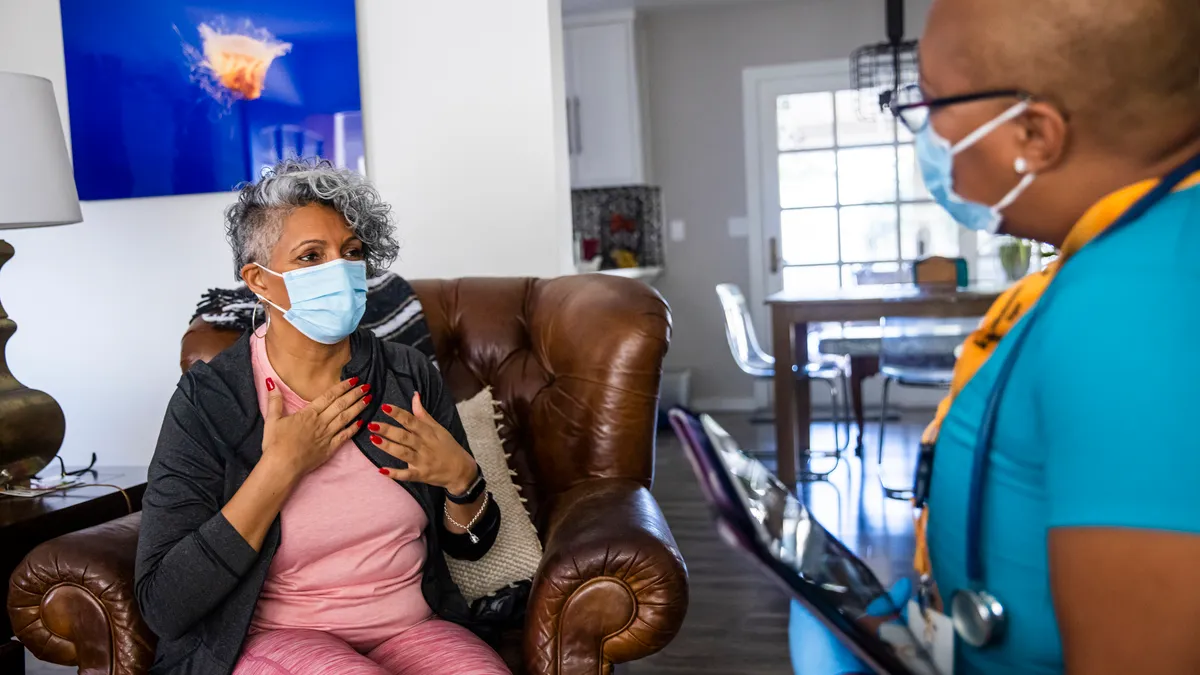Dive Brief:
- As part of an ongoing enforcement effort against alleged Fair Labor Standards Act violations in the residential care and home health industry, the U.S. Department of Labor announced Nov. 16 that it recovered $1,207,162 in overtime back wages for workers at four home healthcare agencies in Texas and Louisiana.
- According to the DOL, investigators for its Wage and Hour Division found Texas companies Ace Primary Home Care owed a total of $841,244 to 400 employees after adjusting their rate of pay to make it appear overtime was paid; Fernandez Care Assistance owed a total of $122,944 to 47 employees for not paying them the additional overtime premium; and the Association for the Advancement of Mexican Americans in Texas (AAMA) owed a total of $82,497 to 23 workers whose pay records were adjusted to indicate no overtime was worked. A Louisiana company, Guardian Angels Care Service, allegedly misclassified workers as independent contractors, the DOL said. The WHD calculated 129 caregivers were owed a total of $160,477.
- “The majority of the home healthcare industry’s workers are women of color, and despite the critical work they do ... their hourly wages remain among the lowest in the nation,” Betty Campbell, Southwest regional wage and hour administrator, said in a media release. The DOL “is determined to make sure employers respect their rights as workers, including the right to be paid proper and full wages as dictated by federal law,” she added. Ace Primary Care, Fernandez Care Assistance and the AAMA did not respond to a request for a comment. Guardian Angels declined to provide one.
Dive Insight:
November is National Home Health Care month, the DOL reminded stakeholders in its Nov. 16 announcement. In recognition, the agency simultaneously released an update on its FLSA enforcement initiative launched in 2021.
The initiative is meant to improve compliance by residential care, nursing facilities, home health services and other employees in the care-focused industry, according to the update. Since the launch, the WHD has conducted more than 1,600 investigations and identified violations in 80% of these reviews, the update said. The most common violations related to not paying overtime or federal minimum wage, or misclassifying employees as independent contractors, it added.
Minimum wage and overtime requirements appear straightforward, but in the home-care industry, compliance can get tricky. For example, employers know they have to pay at least the federal minimum wage of $7.25 per hour to employees who are not exempt from overtime. But when a worker is protected by both federal and state minimum wage laws, the worker is entitled to the higher minimum wage.
Also, nonexempt employees are entitled to receive overtime pay for hours worked over 40 per week at a rate not less than time and one-half their regular rate of pay. Calculating “hours worked” can also get tricky for home-care employers. A DOL fact sheet provides examples of common issues, such was when on-call time, travel time or meal breaks must be calculated as hours worked.
The FLSA doesn’t apply to independent contractors, and the DOL has said its test for determining when workers should be classified as employees and not contractors is meant to preserve their right to minimum wage and overtime.
In October, the DOL proposed returning to a multifactor “totality of the circumstances” test for independent contractors. The proposed standard would be a shift away from the Trump administration’s 2021 rule, which emphasizes two “core” factors: the nature and degree of a worker’s control over their work, and the opportunity for profit or loss based on initiative, investment or both.
As it does with minimum wage and overtime violations, the agency takes misclassification seriously. In September, the DOL announced that investigators found a Pennsylvania home-care company and its owner intentionally misclassified caregivers as independent contractors and misapplied an overtime rule to avoid paying them proper wages. The WHD determined the employers owed a total of $293,000 in back wages and liquidated damages to 75 caregivers.













